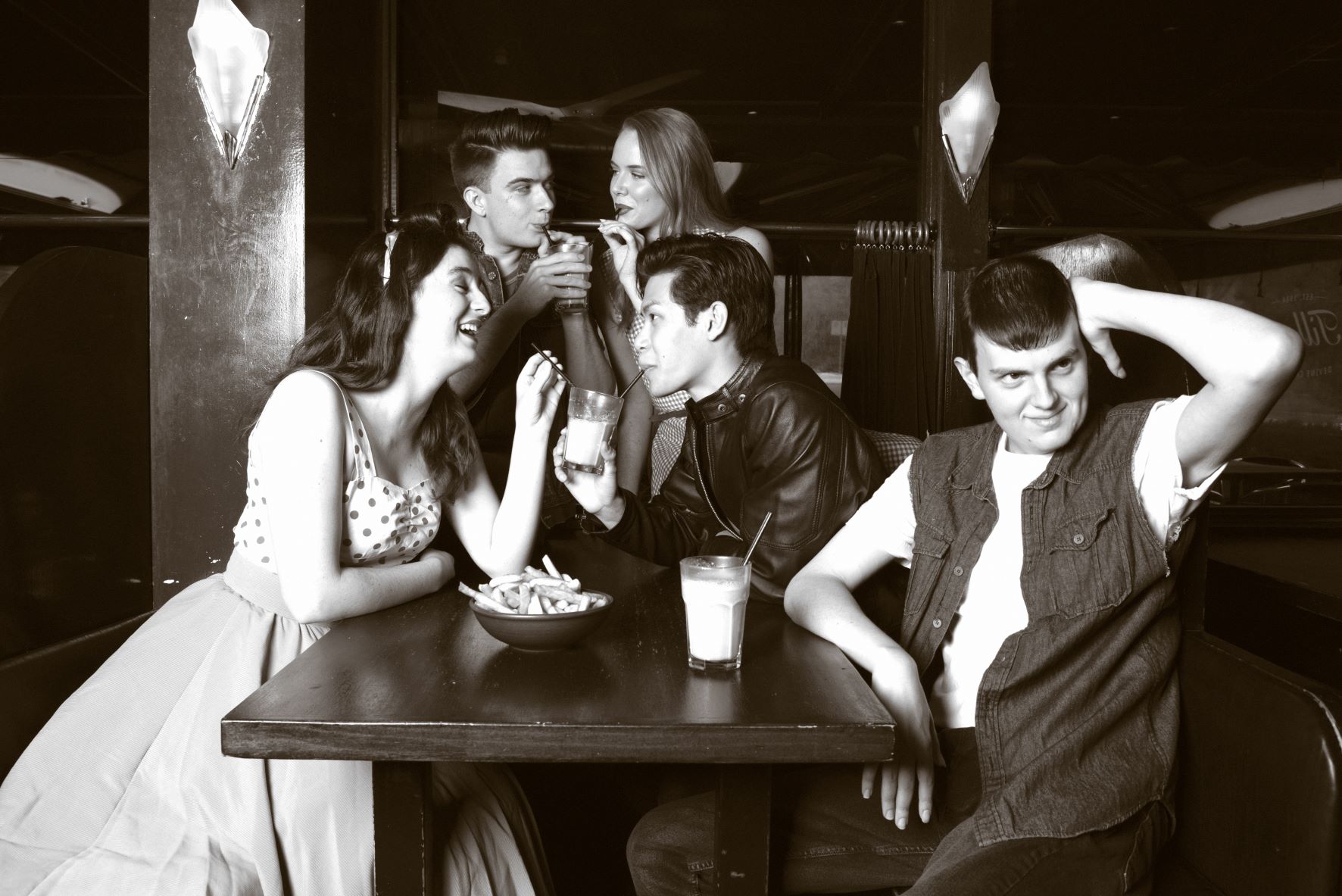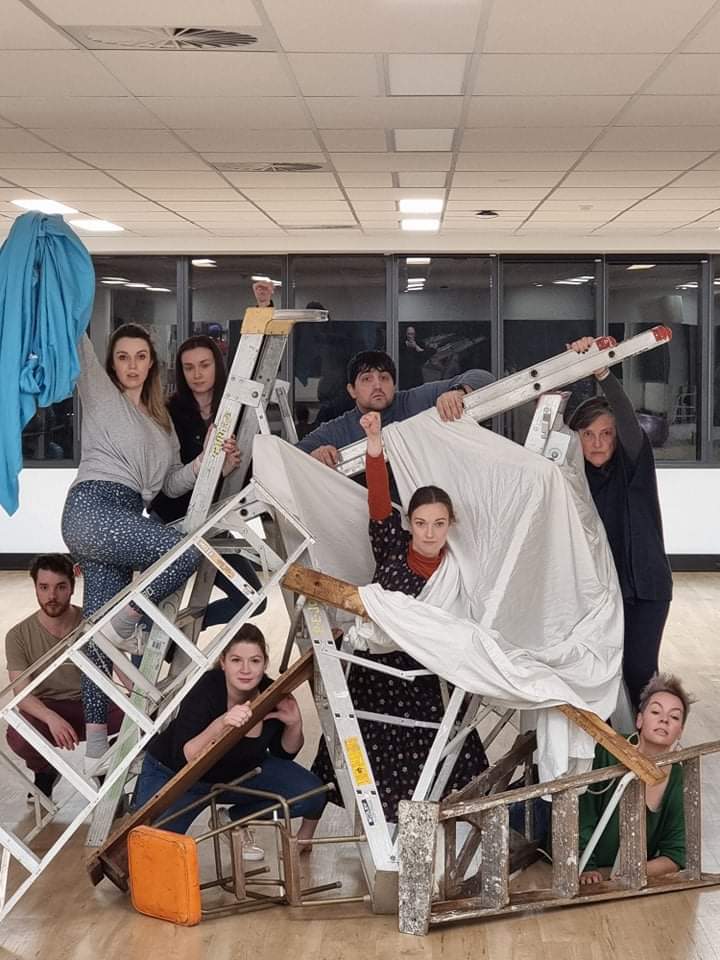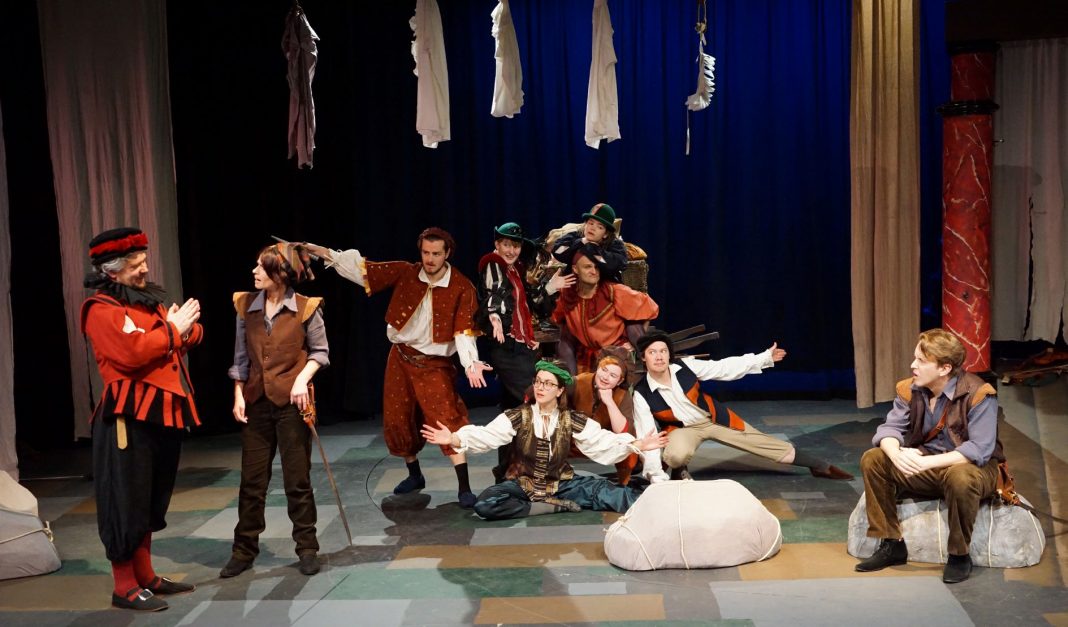COVID has temporarily lowered the curtain on Canberra’s stages. Canberra REP has postponed its production of Rosencrantz and Guildenstern until later this year, and moved what would have been its final production for this year to the start of the 2022 season. Canberra Philharmonic Society (Philo)’s Grease and National Opera’s La Rondine have both been rescheduled for March.
Smaller companies doubt whether their productions will go ahead in spring; Dramatic Productions cannot tell whether it is financially viable to stage Dogfight in October, while newly launched Heart Strings Theatre Co has been forced to hold off its first production, Urinetown, until possibly next year.
Times may be uncertain, but companies say the shows must go on.
“We’re going to try to put on shows as normal as much as we possibly can,” said Philo vice-president Jim McMullen.
“We understand the value of that for the community, and hopefully the community will support the companies doing that. It is a very, very strong community in Canberra. And we’re all sticking together and trying to push forward. We just need the community to support us while we entertain them.”
Canberra REP
REP’s cast were about to step onstage when COVID called a halt to proceedings; the lockdown was announced three hours before their preview performance.
Tom Stoppard’s meta take on Hamlet will be performed as soon as they’re allowed to, but they don’t know the date yet.
“Look on every exit as being an entrance somewhere else,” remarks a character in Rosencrantz and Guildenstern.
The announcement left cast and crew feeling unsettled and sad, not knowing what was going to happen, said REP president Antonia Kitzel.
During lockdown, they are staying in touch, looking out for each other and trying to keep on top of their lines. (Which she says is tricky when they can’t practice, particularly the complicated lines and elliptical conversations Stoppard’s abstract play throws at them.)
“So much work has been put into this production already, it would be really a shame to let it go to waste. It’s such a lovely play – one of the few plays about death that are extremely funny.”
The next play in REP’s 2021 season is Hotel Sorrento; the cast have already started line rehearsals online. That will be the company’s last play of the year.
Sense and Sensibility, which was meant to close the season, has been moved to next year, which in turn means a reshuffle: one of the shows planned for next year will have to make way for Jane Austen.
“We really hope to be back with our community, with our audiences, soon,” Ms Kitzel said.
“We’re looking forward to it. Do come and see Ros and Guil! We will come back; we just don’t know when.”
Philo

Philo’s production of Grease was meant to open on Thursday 19 August; it’s held over until March.
“It makes it pretty hard on the performers,” said Jim McMullen. “They’ve just done three months of rehearsals; they’re all a bit flat about it. They’re supposed to be out there performing to an audience and they’re all locked down in their own houses.
“It’s had a pretty dramatic effect (excuse the pun) on their morale. Actors are out-there people, and they need that constant stimulation.”
But the artistic team are working closely with the cast to make sure they’re OK, he said. “We’ve been having lots of online sessions: a bit of singing, physical jerks, keeping them talking to each other.”
The sets are still in Erindale Theatre; sound and lighting gear will have to come out at some point.
Mr McMullen hopes to begin rehearsals again over Christmas, work on the show through January, and perform to a live audience in late February.
Singin’ in the Rain, which would have been Philo’s first show for 2022, will be moved to the August / September slot.
National Opera
National Opera was going to cap its first year with Puccini’s rare but charming La Rondine (The Swallow). It will now be performed at the Canberra Theatre Centre in March.
“The company had been hoping that the situation would change, but unfortunately it has become impossible for us to bring this exciting opera to Canberra this year,” artistic director Peter Coleman-Wright and general manager Stephanie McAlister said in a statement.
‘Uncertainty’ the biggest issue
Smaller companies are wondering how they’re placed after the lockdown, meant to end on 2 September.
ACT Chief Minister Andrew Barr announced this week that lockdown would be gradually eased – but, wondered Richard Block, local director and manager of theatre website StageCenta, does that mean theatres will be at 50 per cent capacity or only one person per four square metres?
“It’s incredibly difficult for everyone in the industry,” Mr Block said. “It’s mainly the uncertainty that is the biggest issue. If we knew what was going to happen, when we would come out, and what the conditions of coming out would be, we could make plans.”
Mr Block’s own company, Dramatic Productions, has scheduled Dogfight (a musical based on a 1991 movie) for October, at the Gungahlin College theatre.
“I could make a 50 per cent capacity work – but if it was back to one person and four square metres – 36 people in a 300-seat theatre – that’s financially impossible.
“If we know what they’re thinking, that’s the direction that they’re going, then we could say: ‘Well, we probably can’t proceed with our show; let’s postpone and start looking at alternative dates’.”
It’s not only theatre capacity, Mr Block said; it’s rehearsal time. “If we can’t get adequate rehearsal in, you can’t put the show up to performance standard by the time you need to open.”

Heart Strings Theatre Co, a new semi-professional musical theatre company founded this year, were to have put on their first show, Urinetown, in the Canberra Theatre’s Courtyard Studio next month – opening on 16 September, a fortnight after lockdown is due to end. Now the musical probably won’t be put on this year.
“As a producer, I can’t possibly afford to go ahead in the current climate,” said director Ylaria Rogers.
Her production has lost three crucial weeks of rehearsal before opening night. Even once lockdown ends, she is unsure how restrictions will affect rehearsals, and she does not expect to sell the 92 seats she had budgeted for. (The Canberra Theatre, she notes, has been incredibly supportive in helping her company try to find new dates.)
“There is so much investment of time and money that has been committed to the show so my vow is that it will absolutely happen, but when is still to be seen,” Ms Rogers said.
She hopes to put Urinetown on in March.
“It is going to take until at least next year for us to regain the momentum we have lost, and come back able to afford to do it all again,” Ms Rogers said.
“The emotional and financial ramifications of this period of time are enormous. At the moment, it feels like trying to rebuild the pyramids after they have been knocked down.
“The heart, soul, and foundations are still there, but there is so much work to be done in trying to put the pieces together.”
Ms Rogers is trying to launch her company in difficult times. She says she put her savings on the line to start the company, and held a fundraiser to help pay the artists for their time.
“As a small business trying to grow through COVID, it is next to impossible to know what the future will hold,” Ms Rogers said.
“The love and generosity of the community keeps me going. I am worried for the arts. Those ‘exposure’ dollars have never been great at paying the bills, but as the sole head of Heart Strings Theatre … I know you can’t keep relying on people’s generosity forever.”
One of the big concerns, Mr Block said, is that people don’t know if there will be another lockdown. “We could come out for a couple of weeks, and then it’d be straight be back down into another. That’s probably the scariest thing for companies to be staring down.”
“We’ve got no concept of what’s going to happen post-September 2, or even further on,” Philo’s Jim McMullen agreed. “The way the numbers are going, looks like we’ll probably be locked down for a bit longer.”
Canberra theatres could also lose much of their technical expertise, Mr Block fears. Sound and lighting operators’ workload is enormously reduced, and they cannot afford to keep their staff on if they haven’t got work coming through.
“So we lose that talent; we’ve already lost quite a number who have had to leave the industry and work in schools.”
Silver linings
But the silver lining, Mr Block believes, is that because almost all Canberra’s theatre groups are community-based, and don’t have ongoing overheads or staff to pay, they can go dormant. “And when things come back to normal, they can go back to it reinvigorated.”
There is also enormous goodwill from the community.
“There’s such a desire and drive to create art and to create those experiences for both the people onstage and the audience going to see shows that people will bend in all sorts of ways to make it happen, and they will work in challenging situations – whether it’s rehearsing in masks or managing our COVID situations.”
Canberra REP was one of the first organisations in Australia to begin putting shows on last year. Neil Simon’s Brighton Beach Memoirs (July 2020) was performed in tight restrictions, at first only with 25 per cent capacity, eventually reaching 75 per cent.
“People were really glad theatre was back in the city; every show was sold out to capacity,” Antonia Kitzel remembered. “This year, people have come out with smiles on their faces, which is really nice to see.”
Similarly, last year was the first time in Philo’s 70-year history without a show. Tommy (the Who’s pinball wizard rock musical) was cancelled because of bushfires, then Jersey Boys was postponed until this March.
“It was great to get back to the theatre,” said Mr McMullen, who directed the Four Seasons jukebox musical.
“It really did get high critical acclaim, and everyone loved it. But even then, we could only have 75 per cent capacity – which was better than nothing. People really want to see live theatre; it’s just problematic at the moment.”
Quite a production
Going to see a play in COVID conditions can be a production, so to speak; volunteers must clean the theatre before and after a performance, and the foyer during it.
“It’s a lot more work to have a COVID-safe plan in place.” But the volunteers have been amazing, Ms Kitzel said; they take on whatever’s required to keep the audience and volunteers safe while they enjoy the show.
When theatres reopen, Mr Block urged the public to go and see something.
“It doesn’t matter what it is … whether it’s a big professional company or one of our local companies. Just get out there and support the arts, and give our companies confidence that people will come and see the work they’re doing.”
If people have bought tickets, Mr Block encouraged them to see that show when it opens, rather than asking for a refund. That gives companies certainty.
Both REP and Philo report that most people have said they will carry the tickets until the shows are on. Rosencrantz and Guildenstern’s opening night was sold out, and sales for other performances were going well. Grease sold “a hell of a lot” of tickets, around 60 per cent.
“It’s really wonderful to see,” Mr Block said.
“People do love their theatre; they recognise that not only is it great entertainment, but it provides such a community service to developing talent in our town, to giving opportunities for other people to express themselves and find their tribe, what makes them happy, and where they belong, and can give back to the community.”
Get all the latest Canberra news, sport, entertainment, lifestyle, competitions and more delivered straight to your inbox with the Canberra Daily Daily Newsletter. Sign up here.



